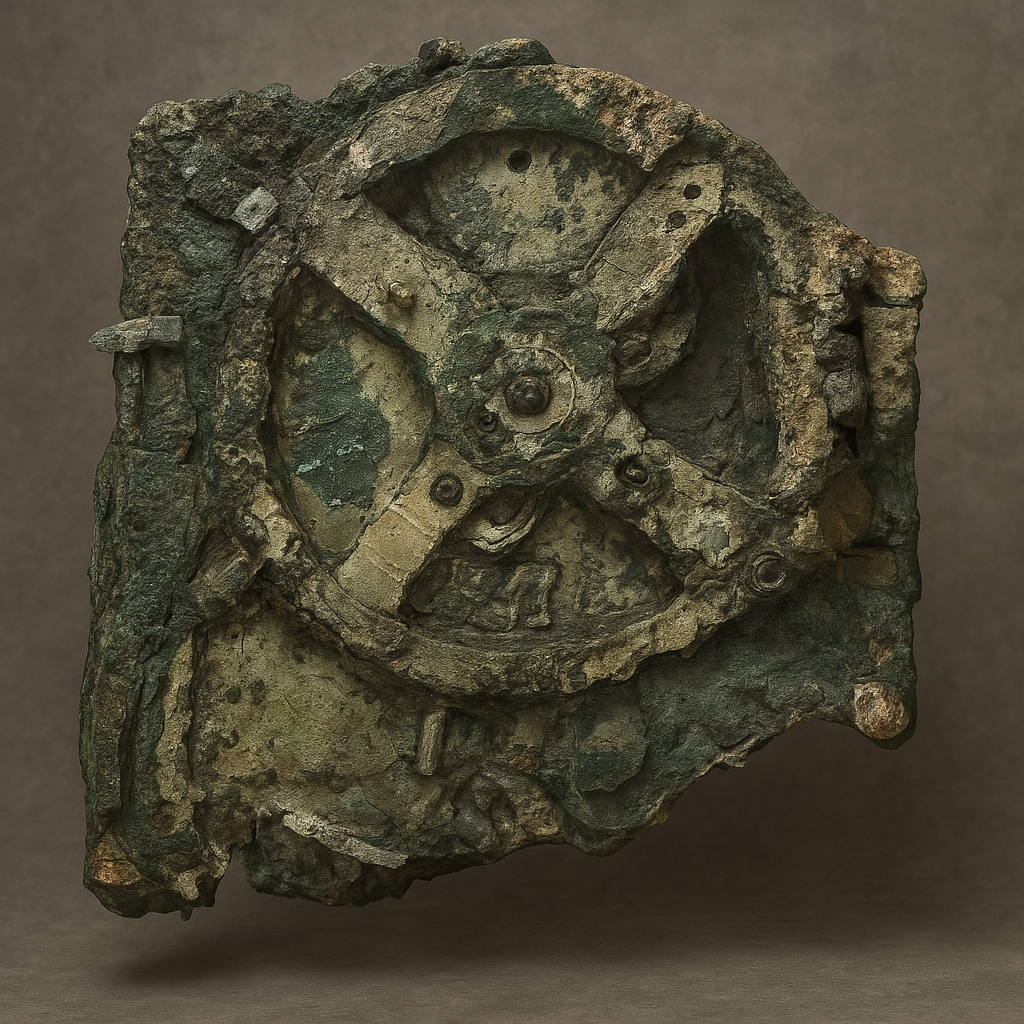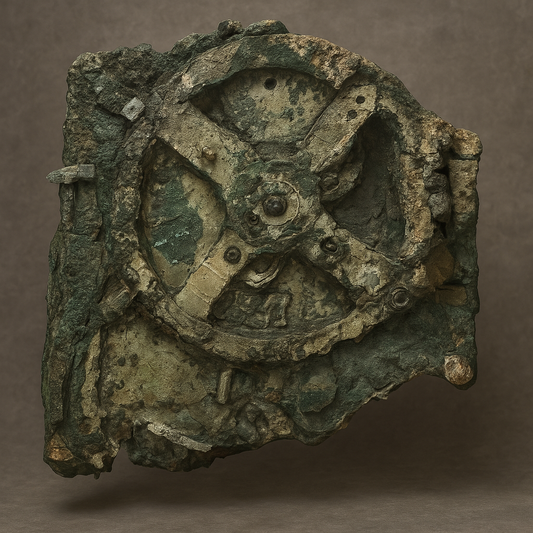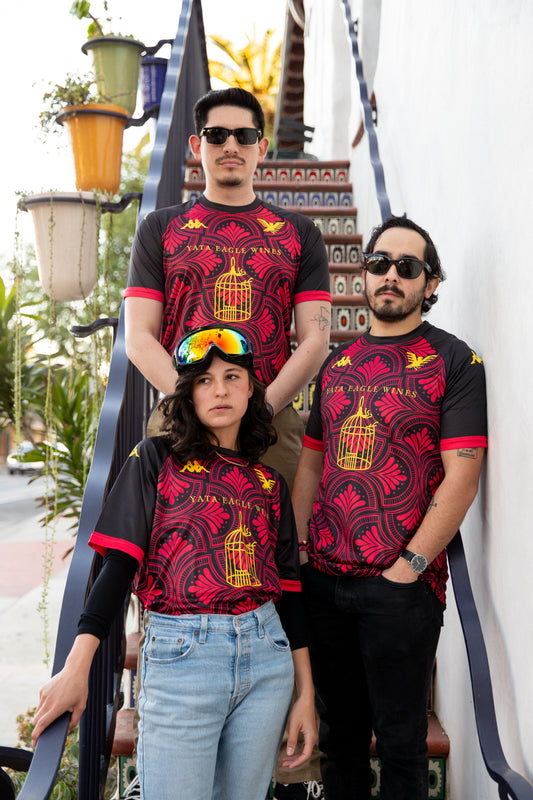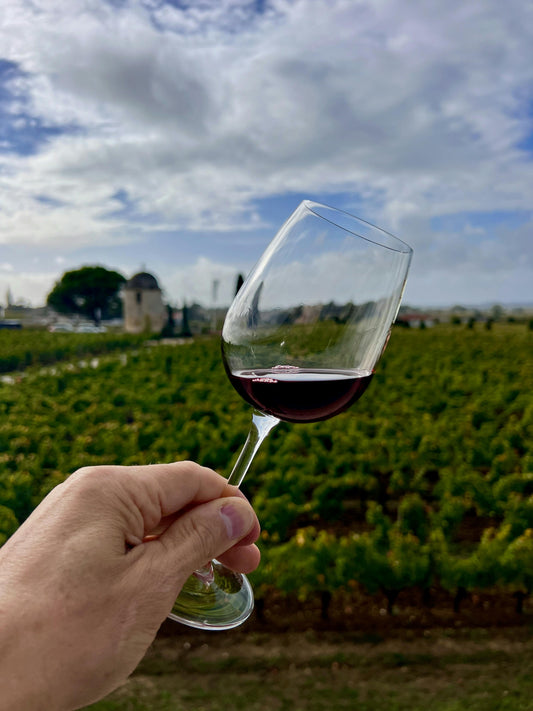
Antikythera and AI: What does this mean for Wine?
Share
The Antikythera computer, the library of Alexandria, the wine knowledge from the Persian empire … all lost in translation or lost in the baton that is knowledge?
Right now, both us winemakers are in the process of blending our wines from the 2024 vintage for our day job. We did not harvest any grapes for Yata Eagle Wines in 2024 because of the slow sales of our inventory, but we promise to be back making wine real soon. However, this is us refining our work and knowledge even though it’s not directly for Yata Eagle Wines. When I am blending, I cannot help but think about the role of humans in crafts.
The world around us is transforming, and wine has historically transformed with the technology/knowledge/resources available to them. From the usage of barrels, to the knowledge of the right varieties to grow in regions, to the subsidies that they receive from the government, the wine industry usually plays an albeit catchup role in the lens of the overall market trend.
Yes, AI is a big talk in the economy. Is it a disruptive technology? Is wine shielded from it or will it embrace it? If we read books and articles by Acemoglu, a MIT professor in Economics, we see what the realistic trend of AI is in the next 15 years[1]. Will it help us blend wines? I do not think so. In order to do so, it needs a large data set. Other than the chemical composition of wine (which is extremely hard to quantify the significant but minor compositions), it has to understand the palate of the critics, the general public, the trend of wine, and the evolution of how taste evolves (in the wine, and in our mouths over time). This dataset could be sped up if any machine learning algorithm can replicate and conduct experiments that are equivalent to 1000 years of harvest over 1000 regions over the course of 1000 seconds.
It will not be able to get there.
There is an argument against the simulation theory[2], which is that there are too many subtle complexities of the world that cannot be computed. Wine is one of the arguments that rejects simulation hypothesis.
Grapes can be picked within a half-an-acre block, fermented in a single tank, and aged in barrels. Even if the barrels are the identical cooperage, the same year, the neighboring barrels can taste differently. It is unpredictable to a degree. Our job is to predict and get the consistent quality as best as we can, and whatever unpredictability that arises from that, we use that to our advantage and create the special blends that you drink. We have to understand the wine, why it resulted that way, and why it evokes a certain reaction. It’s the knowledge that has been passed down to us and knowledge that we can recreate and reuse, unlike the loss of knowledge from the Persian winemaking, or the loss of knowledge from the burning of the Alexandria library, or the Antikythera mechanism[3].
Can AI change that?
AI can certainly do a lot of things. It can change the market, the wine industry, and the economy. Wine, even though some winemakers may want to deny, is still a part of the economy. It’s subject to supply-chain volatility or even trade wars. You, as consumers, may choose wine as a getaway or a reprieve from the reality that is often shaped by the economy or politics of our world. That is something we try to do for you, to create a safe zone, where you get to forget everything but give the opportunity for you to reflect on what you really care about. Wine connects you to us. But it also connects us to the world.
AI can increase the inequality that we see in the world, cause further disruptions in the trade flows across the world. As the AI race heats up between the US and China, we are sure to see a larger role of AI in the international relations strategy for both governments. Meanwhile, there will be little revolutionary gains in wages for the vineyard workers, for the winery workers. What does this mean?
We should stop AI from getting its energy through nuclear power that the big tech companies[4] are investing in and instead make the technology get its energy supply elsewhere. What from you ask? As a winemaker, I’d like to propose that we gather all the wine that is low-quality and mass produced, shove it into these AI computing machineries and then see if it works out. For that brief moment, maybe we can show the rest of the world what good wine can taste like. But will it change the price or accessibility of the high-quality wines?
Maybe we should have AI run on the sweat of the vineyard and winery workers.
Maybe it should be reliant on bad essays written by winemakers for small wineries.
We need to think about what’s disruptive in our lives, what we can and what we cannot control. To some of you, wine is a means of escape. To some of us, it’s our hope of building the foundation to instill ever-lasting positive change. We cannot go forward without putting a plan forward. Will you drink wine while listening to an AI program that tells you how to improve your life or will you drink wine.



